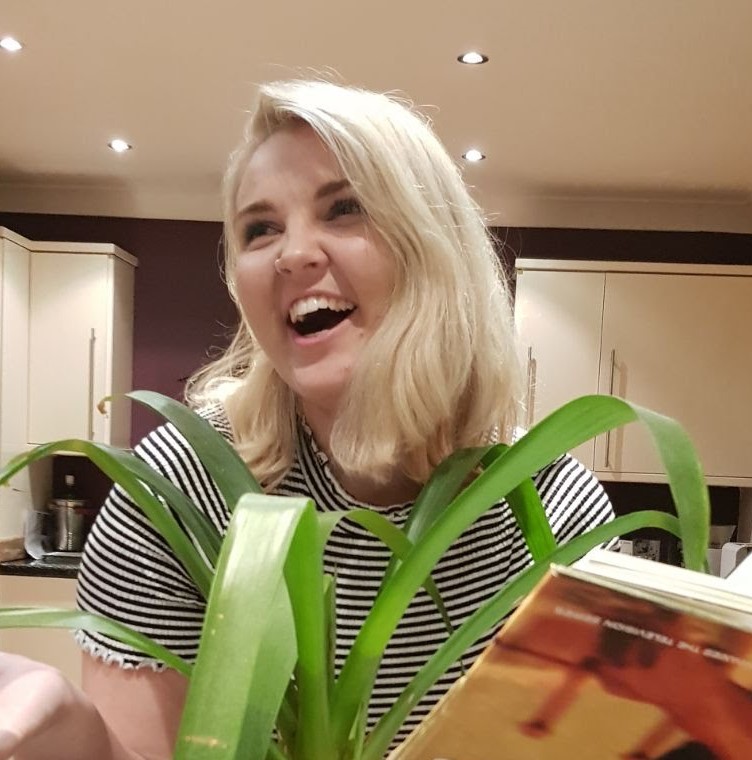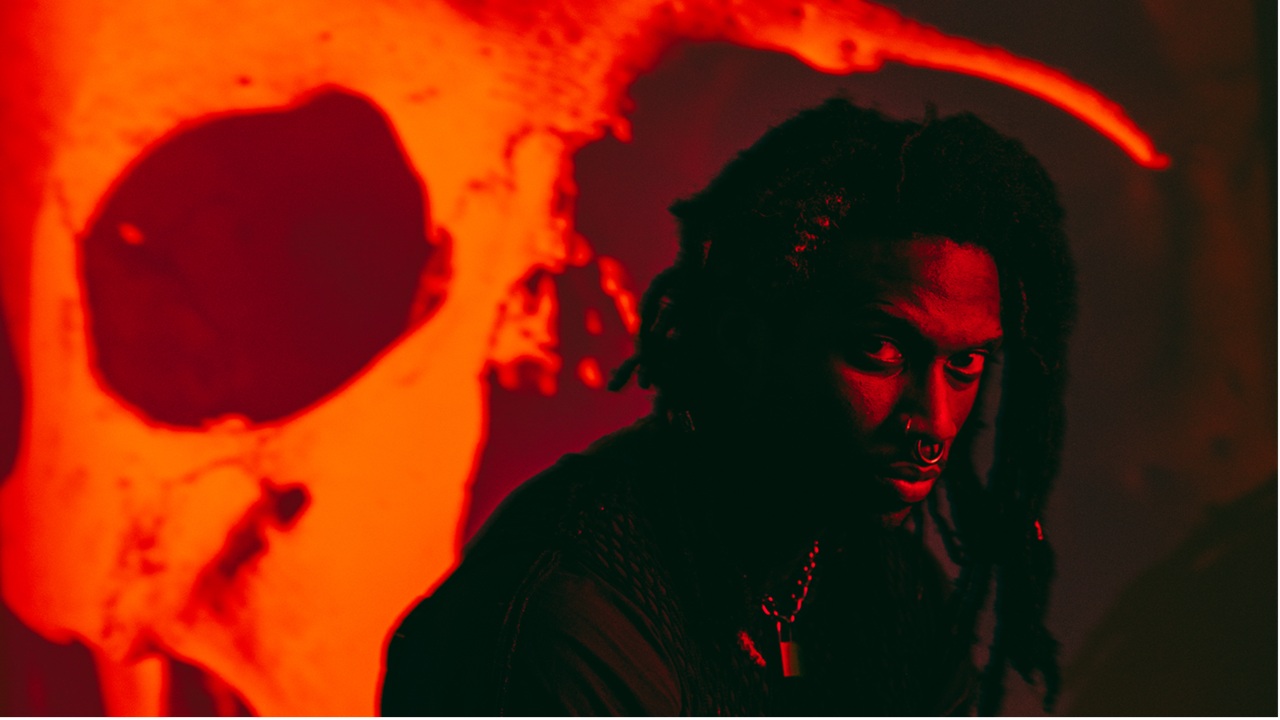"If Graham Norton ripped into me, I would totally respect it." Ireland's Bambie Thug explains why Eurovision is great for metal and alternative communities
When Lordi won Eurovision in 2006, it opened the gates for other metal acts. Now Ireland's 2024 entry Bambie Thug is hoping to push boundaries even further

Select the newsletters you’d like to receive. Then, add your email to sign up.
You are now subscribed
Your newsletter sign-up was successful
Want to add more newsletters?

Every Friday
Louder
Louder’s weekly newsletter is jam-packed with the team’s personal highlights from the last seven days, including features, breaking news, reviews and tons of juicy exclusives from the world of alternative music.

Every Friday
Classic Rock
The Classic Rock newsletter is an essential read for the discerning rock fan. Every week we bring you the news, reviews and the very best features and interviews from our extensive archive. Written by rock fans for rock fans.

Every Friday
Metal Hammer
For the last four decades Metal Hammer has been the world’s greatest metal magazine. Created by metalheads for metalheads, ‘Hammer takes you behind the scenes, closer to the action, and nearer to the bands that you love the most.

Every Friday
Prog
The Prog newsletter brings you the very best of Prog Magazine and our website, every Friday. We'll deliver you the very latest news from the Prog universe, informative features and archive material from Prog’s impressive vault.
Powered by sequins, glitter and cheese, Eurovision once felt like the antithesis of metal – but that’s all changing. Over the past two decades, the annual song contest has warmed up to the heavier side of life. In 2006, Finnish monster-men Lordi bagged the win with Hard Rock Hallelujah, their pyro-enhanced performance serving as a watershed moment for metal in the competition.
It opened the floodgates for the likes of string-loving Finns Apocalyptica to join in, along with their countrymen The Rasmus, while Italian glamrockers Måneskin even took the crown in 2021. Last year, Australia’s synthhappy prog-metallers Voyager and German industrial-glam goths Lord Of The Lost participated in the final, held in Liverpool.
This year’s competition, in Malmö, Sweden, is set to welcome even more alternative acts, pushing the boundaries for what alternative music can look and sound like in 2024. San Marino’s entry, Megara, will be raising a defiant middle-finger with their flamenco-infused rock anthem, 11:11. Elsewhere, Norway’s Gåte are a Nordic folk group in the vein of Wardruna and Heilung, who are offering a modern interpretation of a 1,000-year-old medieval Scandinavian ballad with Ulveham.
Irish nu gen star Bambie Thug is also set to challenge public perceptions – not only when it comes to music and image, but to the gothic subculture as a whole. “I don’t think goths get enough of a spotlight,” says Bambie. “Just like with metal, the public love to assume we’re Satanists, or say my track would be so much better without the screaming.”
Bambie has coined the term ‘ouija-pop’ to describe their music, and their entry, Doomsday Blue – taken from their 2023 EP, Cathexis – combines the grit of industrial torment with a feather-light, alt pop sheen. “I think it highlights a lot of different facets of my sound,” Bambie explains. “It’s like a three-minute burst of musical theatre with separate acts.”
With their glam outfits and elaborate make-up looks, Bambie is the perfect fit for Eurovision – loads of children have already fallen in love with them, considering them to be a living, breathing goth-Barbie. “I keep getting sent videos of kids dressed up in my make-up, or toddlers dancing along to Doomsday Blue,” the singer laughs.
For the sake of their younger fans, Bambie even made sure the music video wasn’t too scary. “We tried to make the monster look a bit more kind,” Bambie smiles. “He’s a lot less demonic and gory than when I first envisioned him.”
Sign up below to get the latest from Metal Hammer, plus exclusive special offers, direct to your inbox!
Alongside their youthful fans, Bambie has been championed by the drag and queer community, as Ireland’s first non-binary participant in the competition. “I think me and Nemo, this year’s Switzerland entry, are the first people to enter Eurovision while identifying as non-binary,” they explain.
Lots of national support has been thrown Bambie’s way, including praise from Ireland’s 2022 entrant, Brooke Scullion. But while BBC commentator Graham Norton is from Bambie’s home county of Cork, they aren’t expecting any preferential treatment. “If Graham Norton ripped into me, I would totally respect it,” they say with a chuckle. “But I’m hoping that he’ll be kind - Cork solidarity.”
For all the backing they’ve received, there are always people who will question why any alternative act – explicitly metal or otherwise – would want to participate in Europe’s biggest pop contest. Putting aside the fact that Eurovision gives artists a chance to reach scores of viewers around the world – in 2023, it reached 162 million viewers with record-breaking online engagement – it also serves as an amazing proving ground for up-andcoming acts.
Finland’s Blind Channel know this all too well – they reached number six in the contest in 2021, and found their online streams and live audiences exploding afterwards. As vocalist Joel Hokka explains, Eurovision was just the challenge they needed.
He fondly recalls the experience as an important “school”, pushing them to become better performers, as well as earning them a record deal. “The whole experience felt like a fairytale,” he says. “We now know how to handle pressure more than many other bands. We’ve had over 200 million eyes on us - after that, almost any show feels like a nice picnic with friends!”
While not all metal acts have succeeded in Eurovision – Lord Of The Lost came last in 2023 - Bambie is going into the competition with their head held high, quietly hopeful that they’ll impress. “I’d love to win, obviously,” they laugh. “But just being seen by so many people will be amazing. Knowing I’ve got the support of my country is going to make it a lot less scary.”
“Honestly, I feel ready,” Bambie concludes. “It’s going to be an honour to represent the alt scene and nonbinary people on such a big stage. It’s about time Eurovision represented the European population more accurately. Not everyone is a pop girlie who can do ballet, y’know?”
Watch the Eurovision Final on May 11 - see the official website for more details. Bambie Thug plays Download Festival in June.
Full-time freelancer, part-time music festival gremlin, Emily first cut her journalistic teeth when she co-founded Bittersweet Press in 2019. After asserting herself as a home-grown, emo-loving, nu-metal apologist, Clash Magazine would eventually invite Emily to join their Editorial team in 2022. In the following year, she would pen her first piece for Metal Hammer - unfortunately for the team, Emily has since become a regular fixture. When she’s not blasting metal for Hammer, she also scribbles for Rock Sound, Why Now and Guitar and more.


